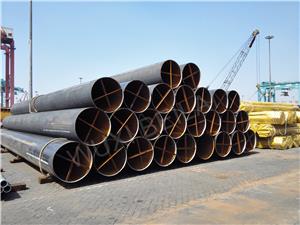Pourquoi les ressources pétrolières et gazières constituent-elles toujours la pierre angulaire du développement des compagnies pétrolières ?
As globalization continues to deepen, energy demand continues to grow, and environmental pressures intensify, oil and gas resources, as an important part of traditional energy, still stand firmly on the cornerstone of the development of oil companies. This article will explore in depth why and how oil and gas resources continue to be the core driving force for the development of oil companies from multiple dimensions such as energy security, market demand, economic benefits, strategic adjustment, and low-carbon transformation.
1. Energy security: the irreplaceability of oil and gas resources
In the global energy landscape, oil and gas resources have long occupied a dominant position due to their abundant reserves, stable supply, and mature technology. As the international political and economic situation becomes complex and ever-changing, energy security issues have become increasingly prominent. As a national strategic resource, oil and gas resources have a stable supply that plays an irreplaceable role in maintaining national economic security and ensuring people's livelihood. Therefore, even with the rapid development of new energy today, oil companies still regard oil and gas resources as the cornerstone of their development and continue to increase exploration and development efforts to ensure the stability and reliability of energy supply.
2. Market demand: the source of power for sustained growth
From the perspective of market demand, the demand for oil and gas resources has not shown a significant downward trend in the short term. According to predictions from the International Energy Agency and many authoritative organizations, in the next few decades, with the continued growth of the global economy and the increasing population, the demand for oil and gas resources will continue to grow. Especially in emerging markets and developing countries, due to the acceleration of industrialization and urbanization, the demand for energy will be even stronger. This continuously growing market demand provides oil companies with broad space for development and provides a strong impetus for them to continue to increase their efforts to develop oil and gas resources.
3. Economic benefits: guarantee of high profitability
The high profitability of oil and gas resources is an important guarantee for the sustainable development of oil companies. Compared with other industries, although oil and gas exploration and development involves higher risks and investment costs, once successful, the returns are also extremely considerable. This high profitability enables oil companies to maintain stable cash flow and profitability in fierce market competition, providing a solid economic foundation for the company's long-term development. At the same time, high profitability also provides sufficient financial support for oil companies in technological innovation, talent training and sustainable development.
4. Strategic adjustment: focus on main business and resource integration
Faced with the rapid development of new energy and the pressure of energy transformation, oil companies have made strategic adjustments one after another to better adapt to market changes and achieve sustainable development. On the one hand, oil companies focus on their main oil and gas business and continuously improve the competitiveness and profitability of their upstream business by strengthening exploration and development, improving production efficiency, reducing operating costs and other measures; on the other hand, oil companies are also actively integrating internal and external resources to Optimize the asset structure and improve overall operational efficiency through mergers, acquisitions, reorganizations, asset divestitures, etc. This strategic adjustment not only helps the oil company consolidate its leading position in the oil and gas field, but also lays a solid foundation for the company's future development.
5. Low-carbon transformation: coordinated development of oil, gas and new energy
In the process of promoting low-carbon transformation, oil companies have not given up on the traditional advantageous area of oil and gas resources, but are actively exploring the coordinated development path of oil and gas and new energy. On the one hand, oil companies have reduced their carbon emission intensity by developing low-carbon energy sources such as natural gas and strengthening carbon asset management; on the other hand, oil companies have also actively carried out investment and research and development in new energy fields, such as wind power, solar energy, and hydrogen energy. and other clean energy projects. This collaborative development model not only helps oil companies achieve their goals of low-carbon transformation, but also helps them occupy a place in the new energy field.




